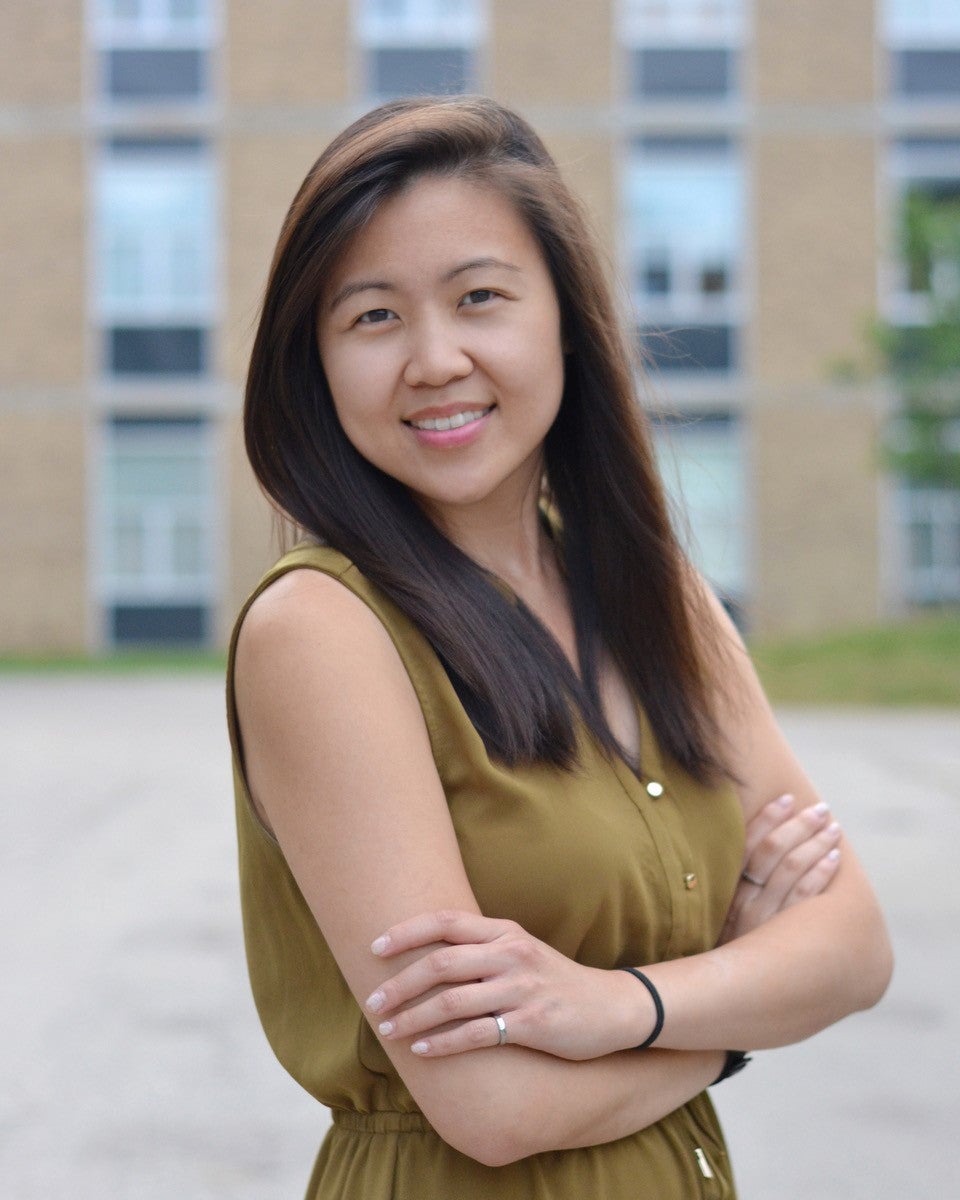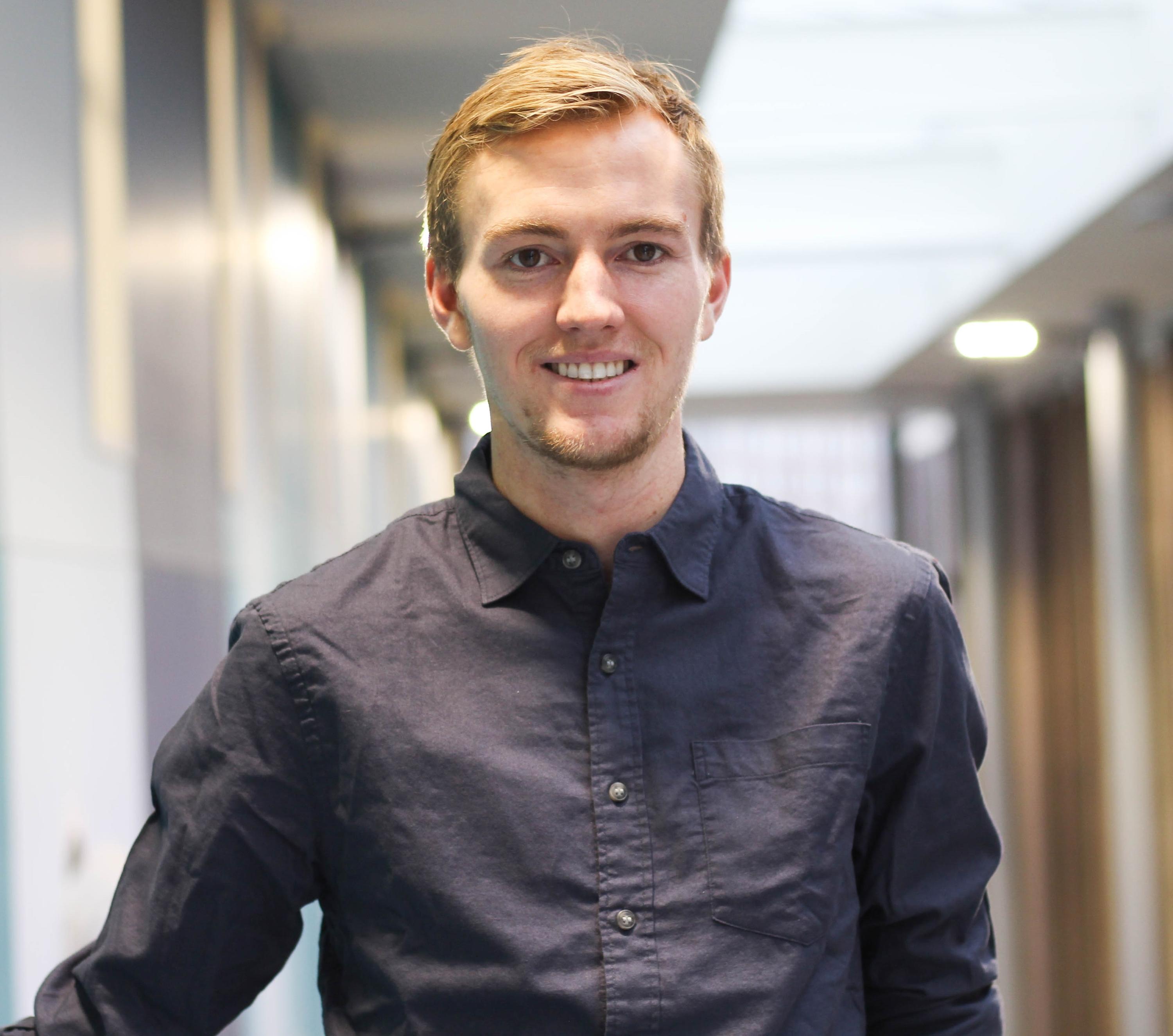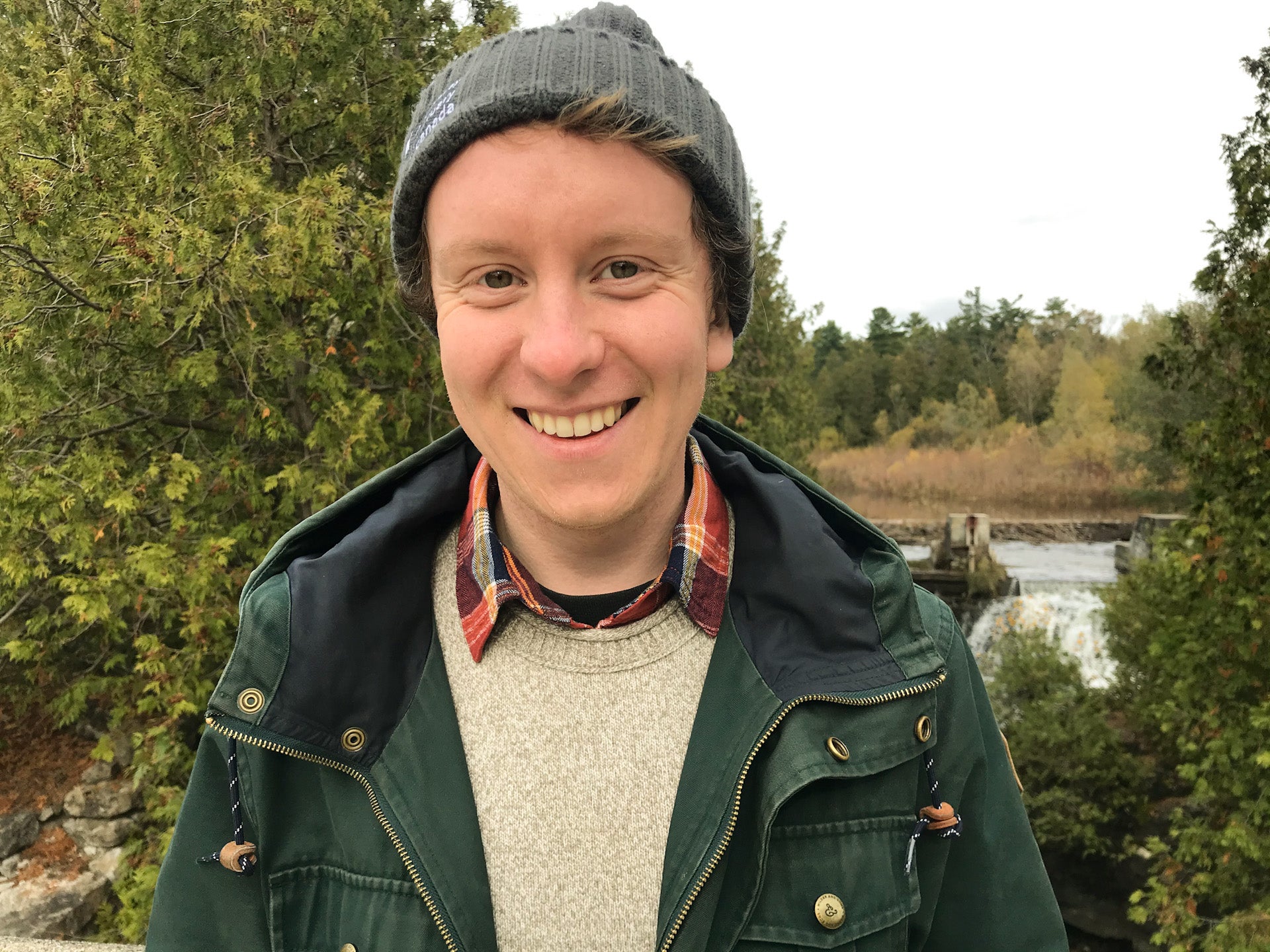We're pleased to welcome you to the Department of Civil and Environmental Engineering. On this page, we'd like to introduce you to some of our current students, one from each of our four unique research groups:
- Transportation: Michelle Liu
- Geotechnical: Wei Zhang
- Structures, Construction, and Mechanics: Stephen Phillips
- Environmental and Water Resources: Leland Scantlebury
Michelle Liu

Michelle graduated with an Honours Civil Engineering degree here at the University of Waterloo in 2018 and is a registered Engineer-in-Training (EIT) with Professional Engineers Ontario. She joined the Centre for Pavement and Transportation Technology (CPATT) as a Master of Applied Science (MASc) Candidate just 12 days after her last undergraduate exam. Michelle
Michelle is working under the supervision of Dr. Susan Tighe, whom she met in 2015 during her tenure as Vice President and President of the UW Canadian Society for Civil Engineering Student Chapter (CEAGES). Michelle went on to work with Dr. Tighe for her fourth-year capstone project on the detailed design of an all-season road in collaboration with the Government of the Northwest Territories. When the capstone team visited Yellowknife, Michelle witnessed the systemic challenges that Northern/indigenous communities face due to climate change and the resulting permafrost/ice degradation. It was then that Michelle decided to contribute to the improvement of Northern infrastructure through graduate research. Michelle is currently conducting field work in Yellowknife to examine the impact of surface material type on the downward transfer of heat in Northern roads. She has funding from various federal agencies, including Transport Canada and Polar Knowledge Canada.
Michelle is currently the President of the Civil and Environmental Engineering Graduate Association (CE2GA), which organizes a variety of events and initiatives each term to enhance the overall experience of graduate students in the Department.
Being educated in engineering is a smart move for any career goal you have in mind. It is broad enough that you cannot possibly run out of backup plans, but specific/technical enough that you can do meaningful work that will have an impact on society.
Wei Zhang

Wei Zhang is currently pursing a PhD degree in the department of Civil and Environmental Engineering, specializing in Geotechnical Engineering under the supervision of Dr. Leo Rothenberg. Before starting her PhD, Wei received her Master’s degree from the Chinese Academy of Science in 2012.
Wei’s research is a numerical study of the micromechanics of soil and its application to liquefaction. She is currently working on a Discrete Element Method simulation of the deformation of undrained saturated sand, with the hope of understanding its liquefaction potential and ‘flow structure’ character.
My work at Waterloo has involved theoretical studies followed by practical applications. This combination has resulted in an efficient way of doing research, yielding innovative ideas and improving critical thinking skills, which ultimately has enhanced the enjoyment of my work. Research, which in the beginning was a confusing and unclear activity, has become an enjoyable experience.
Stephen Phillips

After completing his undergraduate degree at the University of Waterloo in Civil and Environmental Engineering, Stephen joined the structures, construction, and mechanics research group under the supervision of Dr. Sriram Narasimhan. Stephen was originally admitted to the MASc program after completing his bachelor’s degree, but due to the scope of his research and his academic excellence he transferred to the PhD program in 2017.
Stephen’s research focuses on mobile robots equipped with sensors such as LiDAR & cameras that can be used for quantitatively inspecting civil engineering related infrastructure. In the lab, he is working to build these robots, both ground vehicles and surface vehicles, as well as the underlying software that supports them. He is currently using his ground robots for inspecting bridges, nuclear facilities, and other infrastructures such as parking garages.
I started working in the SDIC lab as a URA when I was still an undergrad, which was great exposure and a good learning experience, and really cemented my interest in pursuing graduate studies at Waterloo. I think our lab is unique in our ability to apply state-of-the-art technology from different domains (e.g., robotics, artificial intelligence) for solving civil engineering problems.
Leland Scantlebury

Leland's journey at the University of Waterloo started in 2019 when he began pursuing a MASc (Water) degree, a collaborative program between the department of Civil and Environmental Engineering and the Water Institute, under the supervision of renowned researcher Dr. James Craig. Prior to attending the University of Waterloo for graduate studies, Leland graduated in 2014 from Portland State University with a BS in Environmental Engineering. Leland also worked for four years as a hydrogeologist at S.S. Papadopulos & Associates, an environmental engineering consulting firm, in Washington, DC.
Leland's research focuses on the appropriate representation of groundwater-surface water interactions within numerical models. He is currently working on the coupling of an unstructured groundwater model within the Raven Hydrological Framework. As an “indoor” scientist modeling outdoor phenomenon, Leland tries his best to balance time spent programming with time spent hiking or biking.
The University of Waterloo is full of bright researchers in many fields, but is an especially awesome place to study hydrology thanks to the Water Institute and the Collaborative Water Program. I enjoy how research-focused the graduate program is, and how I am able to take advantage of great courses in other departments as well.